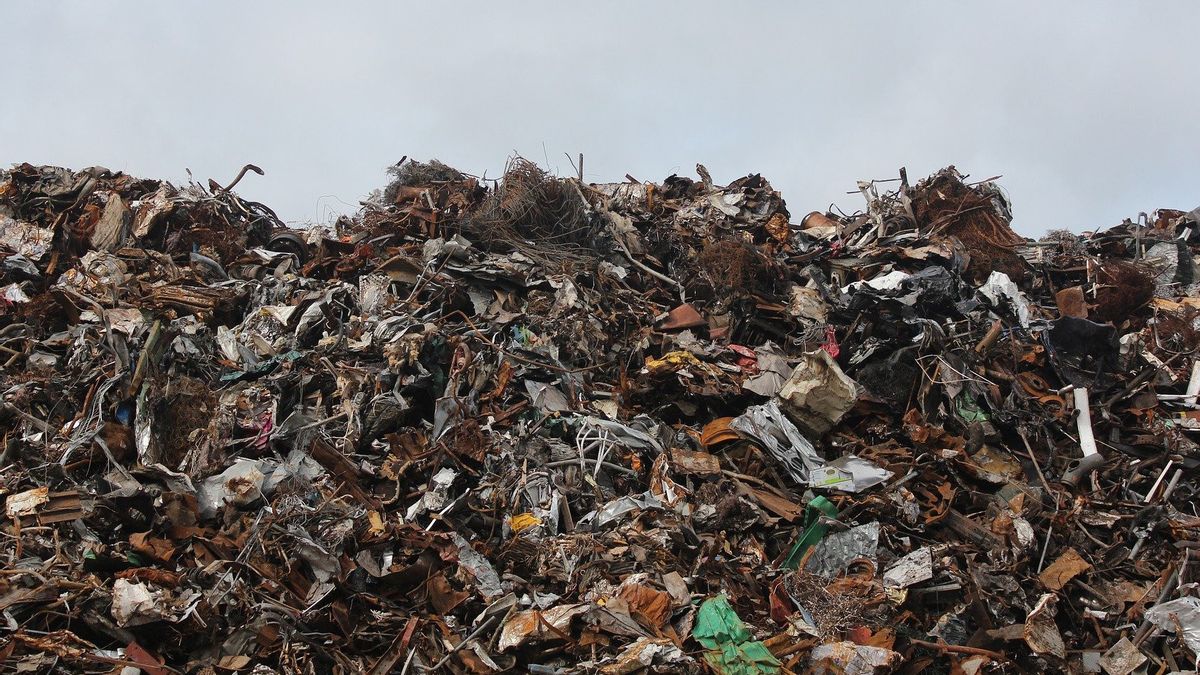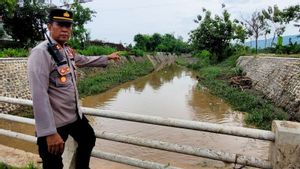JAKARTA - Today, a ban on the use of single-use plastic bags has come into effect in Jakarta. This means that all shopping centers, convenience stores and public markets are required to provide environmentally friendly shopping bags.
This prohibition is legalized in the Governor of DKI Regulation Number 142 of 2019. The discourse to ban plastic bags has been raised since last January.
This rule is applied after the DKI Pemprov has given 6 months. The goal is that all businesses and communities can prepare environmentally friendly bags. Bags that can be used repeatedly, such as bags made of cloth, pandanus, purun, polyester, paper, and dry leaves.
ReasonHead of the DKI Jakarta Environment Agency Andono Warih explained the reason for the DKI Provincial Government to prohibit the use of single-use plastics. The waste problem is one of the classic problems in Jakarta, apart from flooding and congestion.
Based on data from the Department of LH, the waste pile at the end of 2019 reached 7,702 tons / day which entered the Bantargebang TPST, where 34% of the accumulated waste at Bantargebang TPST was plastic waste.
"This is because this type of plastic bag does not sell well to be collected by scavengers, which can be recycled by the recycling industry. This type of waste takes tens to hundreds of years to decompose naturally," Andono told reporters, Wednesday, July 1.
Regarding the concern that the ban on the use of plastic bags will be troublesome and reduce public spending, Andono did not give a definite answer. What he is sure of is that this policy actually reduces merchants' spending on preparing plastic bags which are usually provided free of charge to consumers.
Andono admits that he does not want to continue the paid plastic bag program that was previously implemented by the Ministry of Environment and Forestry. He said, the use of single-use plastic bags will remain high. As a result, the goal of reducing plastic waste was not achieved.
"If it is single-use, it certainly does not meet the reusable principle which is designed to be used repeatedly. Thus, it does not answer the purpose of this policy, namely reducing waste at the source," he said.
The bad impact that occurs if plastic waste accumulates is disruption of water flow in the micro and connecting channels which will cause puddles. The splitting of plastics into microplastics made with these chemicals, if they spread to the waters, can be consumed by microorganisms and other living things.
SocializationIn preparation for the six months before the plastic bag ban goes into effect. DKI Pemprov conducted outreach. Starting from distributing circulars and appeals, to socializing and educating all traders and entrepreneurs.
Then, monitoring the 85 shopping center locations, 2,000 convenience stores, and 158 traditional markets. This socialization was also given to the Indonesian Shopping Center Management Association (APPBI), the Indonesian Retail Entrepreneurs Association (APRINDO), the headquarters of supermarkets namely Carrefour, Indomaret and AlfaMart.
Even so, Andono admits that not all traders agree to the plastic bag ban. However, the rules must be enforced. "In general, business actors support this policy, but there are some business actors who ask for this implementation to be postponed for one reason or another," said Andono.
Sanctions and incentivesThere are sanctions imposed if shopping centers, convenience stores and traditional markets do not comply with the ban on single-use bags. This sanction is regulated in Governor Regulation Number 142 of 2019 concerning the Obligation to Use Environmentally Friendly Shopping Bags.
"The imposition of sanctions is carried out in stages, starting with the manager issuing a warning letter if it is found that a business actor in a shopping center that they manage does not fulfill his obligations according to the provisions," said Andono.
The first sanction, the business actor will receive a written warning. This written reprimand is made three times at most. When not obeying the third written warning letter, within 3x24 hours, the business manager is subject to forced money. The forced money was imposed gradually, starting from Rp. 5 million to Rp. 25 million.
Furthermore, if the business actor has been given an administrative sanction of forced money, but within 5 weeks they still provide plastic bags, they will be subject to administrative sanctions in the form of license suspension.
Until finally, there is a license revocation if the business actor still does not fulfill the payment of forced money beyond the limit of license suspension.
Apart from sanctions, the government also provides opportunities for business actors to obtain fiscal incentives. This incentive can only apply next year or one year after Pergub 142/2019 comes into effect. The regional fiscal incentive in question is a form of regional tax reduction and relief.
The English, Chinese, Japanese, Arabic, and French versions are automatically generated by the AI. So there may still be inaccuracies in translating, please always see Indonesian as our main language. (system supported by DigitalSiber.id)








